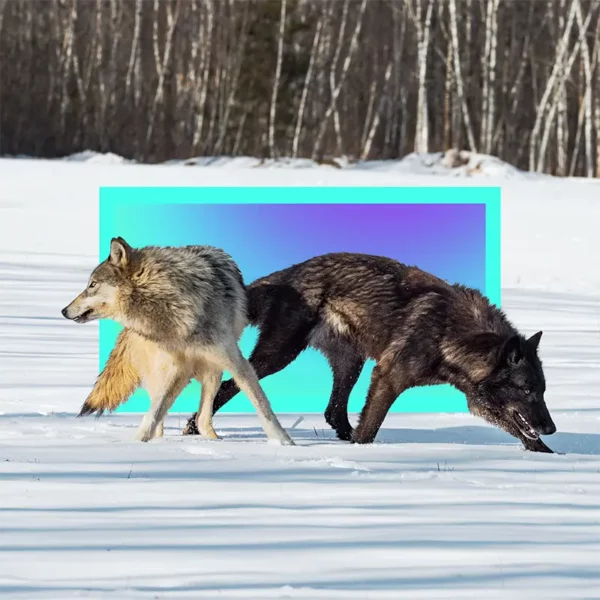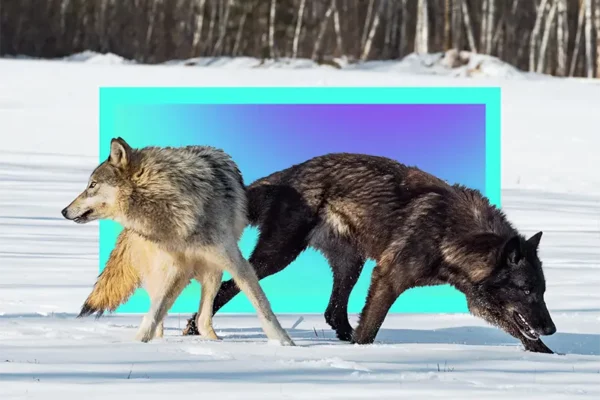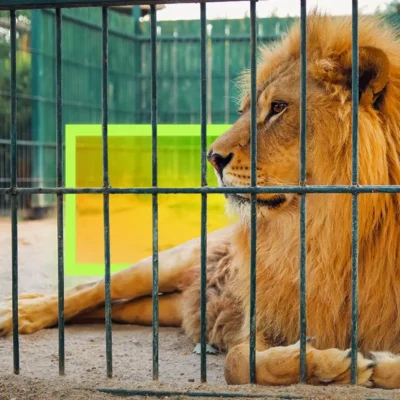ROHAN GUNATILLAKE: Today’s meditation is based on a wonderful collaboration with our friends at the podcast: The One You Feed. If you’d like to hear one of our classic stories, we invite you to visit the rest of our library. Thanks for listening.
At the start of each and every episode of The One You Feed podcast, the host, the fantastic Eric Zimmer, reads out a parable that becomes the jumping off point for the conversation that follows. It’s a rare and super beautiful format, and the show becomes like an expanding universe with the parable at its origin.
So how about we hear from Eric as he reads it one more time…
ERIC ZIMMER: There’s an old parable, where a grandparent says to their grandchild: “In life, there are two wolves at battle within us.
One is a good wolf, which represents things like kindness, bravery, and love.
The other is a bad wolf, which represents things like greed, hatred, and fear.
The child paused before looking up and asking: “Well which one wins?”
The grandparent answered, “The one you feed.”
GUNATILLAKE: Beautiful. So, inspired by the parable, I’m going to take you through a handcrafted meditation based on its story.
Good stories need good characters and so let’s start there. And the character I’d first like to invite into our meditation is the grandchild. There’s something about the grandchild in the parable. They’ve got a great vibe. They listen carefully to their grandparent, they’re reflective, they are open to learning and they ask good questions. So how about we start our meditation by being that grandchild.
For me the grandchild represents a kind of innocence; perhaps a better word is openness. With openness, we can be aware of more and more aspects or dimensions of our experience. With openness, we are able to flow with things as they appear, without getting caught up, fixated, or closed down. In my own life, being open means saying yes to things, even when my own default reaction might be to say no.
And a good way to encourage openness within us is to model it in our bodies. Letting the hands be open; no need to hold any tension there. Opening our mouth, our lips apart just a tiny bit, releasing any tension in the jaw. And breathing into the chest, the diamond shape bounded by our chin, our hands and our belly open.
Our body open. Our body mirroring the openness we are inviting to our mind. There’s a reason we always start Meditative Story with the refrain of our senses being open, our mind being open. The grandchild knows that it’s hard to learn, hard to grow our wisdom, when our mind is closed. So as we sit, lie, or stand here, we notice how our mind is already open.
We hear sounds from near and far.
We notice sensations from across our bodies, loud sensations and the more subtle.
With grandchild mind, a soft pliable mind, an open mind, we watch thoughts pop up and float along, without the need to grab onto them or get sucked in.
And to be the grandchild requires there to be a grandparent. Here in our parable, the grandparent is a wise elder, imparting their knowledge. It’s a lovely opportunity to think of someone who has been that to us in our life. They may have been a family member, a teacher, or someone else entirely. Either way, bring to mind someone a generation or two older than you, who has had an important impact in your life. Maybe they helped you make a decision. Maybe they just listened. Maybe they told you stories which are with you to this day.
Use the magic of your mind and your memory to bring them here — in whatever way works for you. I’ve been thinking of a great aunt who recently died, who taught me through her energy, her humor and her fearlessness in how she lived her life.
Whoever it is for you, bring them here, and if bringing them here makes you smile or evokes other pleasant feelings in the body, then enjoy.
So that was bringing a grandparent character to mind. But being the grandparent in the parable is different. Yes, they have wisdom to share and have learnt many lessons. But as I reflect on the parable, I start to wonder how have they learned their lessons, and whether it was the hard way. And was their motivation to teach in part driven by their hope that their grandchild doesn’t make the same missteps they did.
I also wonder what started the conversation. Were they caught in a distant reverie, and started speaking to their grandchild out of nowhere? Or, were they sharing the parable, knowing it was just the right thing to say in that moment? There is real skill in knowing what to say to someone at the right time — knowing what story to tell so as to give the best chance of unlocking understanding. My take is that the grandparent was doing the latter.
So we’ve moved perspective. Become the grandparent in the story. Join me in what I as the grandparent am reflecting on.
I’m reflecting on the wisdom I’ve gained over the years and how I relate to it. Am I honest with myself about what I’ve learned? The good and the bad? Let’s take a few breaths to explore that. Letting whatever comes up come up, being okay with things, relaxing the need to judge ourselves too harshly.
The grandparent character is so interesting. What has happened that made the wolf metaphor so powerful for them? There’s a big backstory here for sure.
And it makes me wonder, what kind of language and imagery would you use when advising younger people around you?
So as we close off our time being the grandparent, let’s make an intention — to be a wise elder to someone in the next week or so. There is great skill in codifying what we have learnt in our lives and greater skill in sharing it well. How about you join me in seeing how we can give it a go. Be the grandparent in the parable.
Now, you might at first think that there are only two characters in the parable: the grandparent and the grandchild. But of course, there are two others: the good wolf and the bad wolf. It’s only right therefore, as we start to close out our meditation together, we also take on their perspectives.
The good wolf. The wolf being fed. The one being encouraged to grow. Right now in this moment, what qualities are present that you want to grow?
Maybe softness in the body?
The openness we explored to begin with?
The flexibility of mind to switch from one reflection or meditation style to another?
Choose a quality, choose a good wolf within you to feed, and not thinking about the future, but how you can express that quality now in this moment.
Not just feeding the good wolf, not just cultivating this beautiful quality.
But being the good wolf, ourselves and our beautiful qualities one and the same thing.
Now, there is of course the fourth character in the parable.
The “Bad” Wolf.
The archetypal bad guy in stories, from Little Red Riding Hood and all the rest.
Speaking entirely personally, I recognize qualities within myself, behaviors which are problematic. I’ve learned many things the hard way, but in some cases I continue to repeat difficult patterns over and over again.
We all have those patterns. But reflecting on the parable, I’m not sure if calling them good or bad is necessarily helpful.
For example, right now in your body, there will be some kind of pleasant sensation. Let’s take a little while to find it.
Now, perhaps more obvious might be an unpleasant sensation, some tension or holding.
Take some time to find that and feel that.
Yes we can starve the difficult, starve the bad wolf of fuel, but does that free ourselves from it?
Or, is the classic mindfulness play of holding lightly, a better alternative?
Avoiding where we can, the binary of good and bad. And instead holding whatever comes up with kindness and lightness.
Again, let’s practice that with physical sensations.
Dropping the idea of good and bad and watching whatever sensations arise.
Welcoming whatever arises, not getting tangled up, letting sensations come and go, fireflies in the body, fireworks, not things to hold on to.
Wolves, we’re full of them. Just wolves.
So that is my interpretation of the parable as a meditation. I’ll read the parable one more time and as you hear it again, take some time to think about what it means for you.
A grandfather is talking with his grandson.
The grandfather says, “In life, there are two wolves inside of us which are always at battle.
One is a good wolf, which represents things like kindness, bravery, and love.
The other is a bad wolf, which represents things like greed, hatred, and fear.”
The grandson stops and thinks about it for a second, then he looks up at his grandfather and says, “Grandfather, which one wins?”
The grandfather replies, “The one you feed.”
Thank you again to Eric and his team at The One You Feed.
And thank you.
We’d love to hear your personal reflections from today’s meditation. You can find us on all your social media platforms through our handle @MeditativeStory. Or, you can email us at: [email protected].






